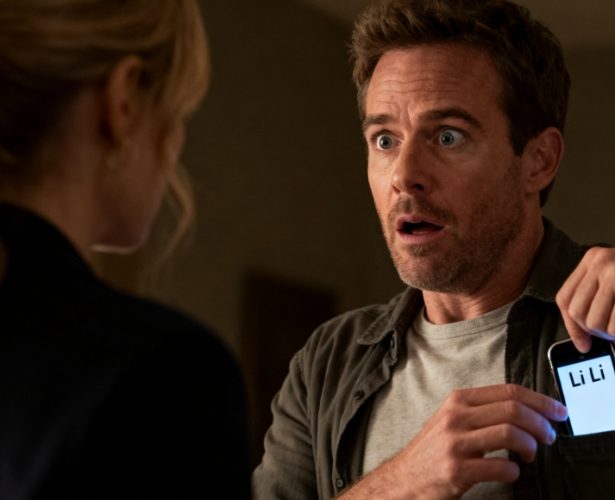Almost all investors believe they will be successful before entering the market, yet reality often falls short of expectations. In fact, winning in the speculative market is not about 100% analysis, but rather the investor's understanding of trading and their strategic mindset. Therefore, whether you are a newcomer to the market or an experienced investor who has been exploring it for years, it is essential to have a correct understanding of trading and manage your mindset effectively.
I. Inventory of Several "Tigers" That Hinder Investment Success
In market investment, if investors want to become long-term, stable winners, the first task is to understand and overcome the factors that lead to investment failure:
1. Greed Psychology vs. Fear Psychology
The investment market is a high-risk, high-return market, and human greed and fear are the "tigers" that prevent all market participants from achieving success. In trading, investors can only overcome these psychological weaknesses to defeat themselves and then earn profits within their understanding.
Haste makes waste, and opportunities are reserved for those who are prepared. Prepared individuals, on the contrary, will not be disturbed by the market's short-term fluctuations but can even gain high returns amidst the volatility. There are many trading opportunities every day under market fluctuations, and without a clear trading plan, investors are prone to enter the market blindly and fall into a passive situation. In fact, this is the work of a greedy mentality.
Fear psychology is another terrifying human weakness in trading. In a market that chases gains and cuts losses, investors are most likely to develop this mentality. The most common situation is that as soon as the price starts to rise, investors can't help themselves, throwing their trading plans to the wind, and worrying about missing out on trading opportunities by entering hastily.
In retrospect, the price at which they enter is often the highest. Then, a fluke mentality arises, praying that the price will develop in their favor, but the market is ruthless, and the price continues to fall, leading to the emergence of fear psychology, always thinking that the downtrend has formed, and then cutting their losses and closing positions, often selling at the floor price.
Conversely, if profits are generated through chasing gains and cutting losses in market fluctuations, investors will be more convinced that they are correct and will set higher or lower target positions under the drive of greed psychology, blindly optimistic. At this time, the market generally experiences a significant turning point, trapping themselves.Investors often act blindly when they need to be calm the most. Rapid declines or rises in prices should actually be the best opportunities to buy or sell, but due to the presence of greed or fear, they often make the opposite decisions. Repeatedly doing so, their mentality deteriorates completely, and investors can no longer face the market pressure calmly.
2. Trading Process VS Trading Results
Most traders are easily affected by the fluctuations in the market, often leading to holding onto losing positions while letting go of profitable ones. In addition to investors not understanding the principles of market operation, the main reason is that they focus too much on the results of trading profits and losses!
Most investors enter this industry with the purpose of making money, which is undoubtedly the case. However, if investors do not do well in the process of making money, it is also difficult to achieve the result of making money.
In fact, whether a matter can be done well, the process is the most important! If investors often think about how to make profits during the operation process, generating excessive psychological pressure, they tend to focus too much on the results (profits and losses) and easily neglect the importance of the process, and the final result will inevitably be contrary to expectations.
This is also called the "Walenda mentality" effect. A famous high-wire performer in the United States, Walenda, unfortunately, lost his grip and died in a major performance. After the incident, Walenda's wife said that she had a premonition that Walenda would have an accident because Walenda kept nagging before this performance, "This performance is too important, it cannot fail."
Before each successful performance, he only thought about walking on the tightrope and did not think about the consequences that this matter might bring, that is, he had no distractions. Later, psychologists called this kind of focus on doing things themselves, without thinking about the significance of the matter, and not worrying about gains and losses, the "Walenda mentality."
II. The Only Way to Crack Human Weaknesses
As Soros said, risk is not terrible, what is terrible is uncontrollable risk! When dealing with objective market risks, investors can follow the principles of avoiding risk, reducing risk, retaining risk, and sharing (dispersing) risk. The so-called subjective uncontrollable risk of human nature is caused by human weaknesses. Investors can avoid risks by cultivating conservative investment concepts and self-cultivation, and can follow the following methods:1. Trading in batches yields higher returns. Set a specific price and capital amount for each transaction and strictly adhere to it, such as 1% or 2%.
2. Always keep a certain amount of cash on hand. Establish a minimum cash holding requirement and strictly adhere to it, such as maintaining a minimum of 30% or 40% of the portfolio in cash or cash equivalents.
3. Have a rough valuation line. For example, set a deep undervaluation line, and only buy when large-cap stocks are significantly undervalued with high dividends and meet the criteria; for selling, also set a line of overvaluation based on the price-to-book ratio and dividend yield, and sell in batches or balance on the line.






























Discussion